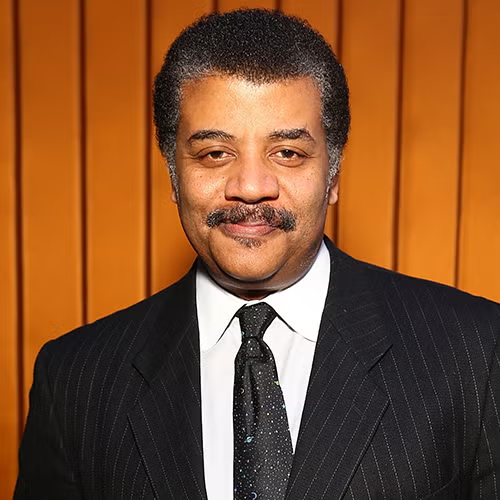
Table of Contents
Who Is Neil deGrasse Tyson?
Neil deGrasse Tyson is one of America’s most renowned astrophysicists, known for his ability to make complex scientific ideas accessible to a broad audience. With a passion for educating the public about science, Tyson has become a prominent figure in popular media, bridging the gap between the scientific community and the general public.
After completing his undergraduate studies at Harvard University, Tyson earned his doctorate in astrophysics from Columbia University in 1991. In 1996, he joined the Hayden Planetarium, eventually becoming its director. Beyond his work at the planetarium, Tyson has hosted popular science programs such as NOVA ScienceNow and the StarTalk Radio podcast, solidifying his role as a leading public advocate for science.
Early Life and Education
Born on October 5, 1958, in New York City, Neil deGrasse Tyson developed a fascination with the stars at an early age. A pivotal moment came when he visited the Hayden Planetarium at the American Museum of Natural History at just nine years old, sparking a lifelong passion for astronomy. Inspired by that experience, Tyson began attending classes at the planetarium and acquired his own telescope, often observing the night sky from the rooftop of his apartment building.
Tyson excelled academically and graduated from the Bronx High School of Science in 1976. He went on to earn a bachelor’s degree in physics from Harvard University, followed by a Ph.D. in astrophysics from Columbia University in 1991. After completing postdoctoral research at Princeton University, he secured a position at the Hayden Planetarium.
Career Highlights
Director of the Hayden Planetarium
As director of the Hayden Planetarium, Tyson played a key role in a $210 million renovation of the facility, which was completed in 2000. His efforts helped create a modern, interactive space for astronomical education. One of his most debated decisions during this time was removing Pluto from the list of traditional planets, a move that predated the International Astronomical Union’s 2006 reclassification of Pluto as a dwarf planet. Despite public controversy, Tyson’s position on Pluto reflects his commitment to keeping planetary science up to date.
Host of ‘NOVA ScienceNow’
Tyson further expanded his influence by hosting NOVA ScienceNow from 2006 to 2011, a popular documentary series that made science more approachable to the public. With his engaging style, he aimed to “bring the universe down to Earth,” making science more appealing and exciting for audiences. Additionally, Tyson has been a trailblazer in his field, being one of the few African Americans in astrophysics, while advocating for more diversity in science.
Presidential Advisor
In 2001, President George W. Bush appointed Tyson to a commission focused on the future of the aerospace industry. Three years later, Tyson served on another presidential commission that reviewed U.S. space exploration policies. His involvement in these high-profile initiatives further underscored his impact on the national dialogue surrounding space and science policy.
Tyson continues to be a prominent voice in science, educating and inspiring audiences worldwide with his clear communication and passion for the universe.
Celebrity Scientist & TV Appearances
Neil deGrasse Tyson is one of today’s most sought-after science communicators. Known for his ability to break down complex scientific ideas for the general public, Tyson is frequently invited to speak across the U.S. and appears on media outlets whenever significant science-related news arises. His charismatic oratory, combined with his humor, has led to appearances on prominent shows such as Real Time with Bill Maher, The Colbert Report, and The Daily Show.
StarTalk Podcasts & TV
In 2009, Tyson launched the podcast StarTalk Radio, a unique blend of science and entertainment featuring comedic co-hosts. The show’s popularity led to the creation of StarTalk as a television series in 2015. Two additional podcasts, StarTalk All-Stars and StarTalk Playing with Science, have since spun off, each continuing the mission of making science accessible and engaging.
Cosmos
Tyson took on the role of host and executive editor for the 2014 series Cosmos: A Space-Time Odyssey, a modern reboot of Carl Sagan’s iconic Cosmos series. This 13-episode show aimed to deepen public understanding of the universe and the origins of life, capturing the wonder and beauty of the cosmos for a new generation.
Books
Tyson has authored several popular books aimed at making astrophysics more approachable. Notable works include Death by Black Hole and Other Cosmic Quandaries (2006), The Pluto Files: The Rise and Fall of America’s Favorite Planet (2009), and Astrophysics for People in a Hurry (2017). His most recent publication, Letters from an Astrophysicist (2019), offers insights through a compilation of his interactions with fans and critics.
Sexual Misconduct Allegations
In 2018, Tyson faced allegations of sexual misconduct from three women, with one claiming an incident from 1984. Tyson addressed these accusations in a detailed Facebook post, denying the claims and welcoming further investigation. In 2019, Fox and National Geographic, which air Cosmos and StarTalk, concluded their investigations, announcing they would continue to feature Tyson’s programs.
Wife and Children
Tyson resides in New York City with his wife, Alice Young, a Ph.D. in mathematical physics. The couple has two children, Miranda and Travis.
